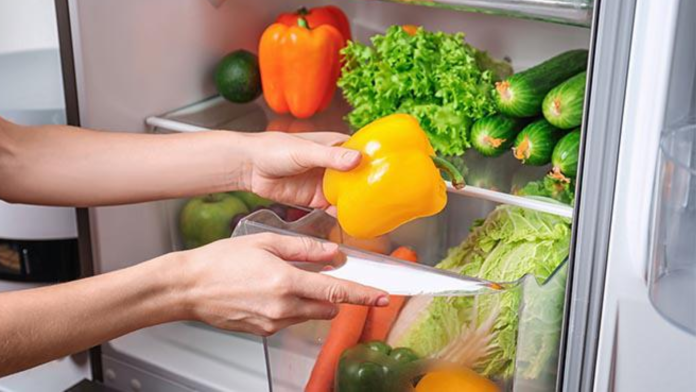When it comes to storing fruits and vegetables, many people are unaware that certain combinations can have a negative impact on their freshness and flavor. The belief that all produce can coexist peacefully in the same space is a common misconception. In reality, some fruits and vegetables release ethylene gas, a natural hormone that can either accelerate or inhibit the ripening process in nearby produce. This article aims to shed light on this intriguing phenomenon, highlighting specific fruit and vegetable combinations that should never be stored together. By understanding the reasons behind these storage guidelines, individuals can prolong the shelf life and quality of their produce, reducing waste and ensuring maximum flavor and nutritional value.
Understanding Ethylene Gas and Its Effects:
Ethylene gas is a naturally occurring plant hormone that plays a significant role in the ripening process of fruits and vegetables. It acts as a chemical signal, triggering various physiological responses, such as softening, color change, and flavor development. While ethylene gas is essential for the ripening of certain fruits, such as apples, bananas, and tomatoes, it can also accelerate the ripening process in other produce, leading to premature spoilage.
Certain fruits and vegetables are ethylene producers, meaning they release significant amounts of this gas as they ripen. Examples of ethylene-producing fruits include apples, bananas, pears, and peaches. On the other hand, ethylene-sensitive produce, such as leafy greens, cucumbers, carrots, and broccoli, can be negatively affected by exposure to this gas, leading to wilting, yellowing, and overall deterioration.
Fruit and Vegetable Combinations to Avoid:
1. Apples and Leafy Greens:
Apples emit a high concentration of ethylene gas. Storing them in close proximity to leafy greens like lettuce and spinach can cause these greens to wilt rapidly. To maintain the crispness and freshness of leafy greens, it is advisable to store them separately from apples.
2. Bananas and Berries:
Bananas are known for their high ethylene production. Placing bananas near delicate berries, such as strawberries, raspberries, or blueberries, can accelerate their ripening process, leading to premature spoilage. To prolong the freshness of berries, keep them away from bananas.
3. Tomatoes and Cucumbers:
Tomatoes are notorious for their ethylene release. Storing them alongside cucumbers can cause the cucumbers to develop a bitter taste and become soft quickly. It is best to store tomatoes and cucumbers separately to preserve their individual flavors and textures.
4. Avocados and Bananas:
Both avocados and bananas are high ethylene producers. Storing avocados with bananas can cause the avocados to ripen too quickly, resulting in mushy and overripe fruit. To ensure avocados ripen at an appropriate pace, it is recommended to keep them away from bananas.
5. Onions and Potatoes:
Onions release ethylene gas while potatoes are sensitive to it. Storing these two together can cause the potatoes to sprout more quickly and become soft. To maintain the quality of potatoes, it is best to store them separately from onions.
6. Apples and Berries:
As mentioned earlier, apples release a significant amount of ethylene gas. Placing them near berries, such as strawberries or blueberries, can lead to faster spoilage and loss of flavor. To extend the shelf life of berries, store them away from apples.
Ethylene-Loving Fruits Together:
Certain fruits, like melons, kiwis, and mangoes, are ethylene producers. Storing them together can lead to accelerated ripening, which may result in fruit becoming overly soft and mushy. It is advisable to keep these ethylene-loving fruits separate from each other.
Final Thoughts:
Understanding the behavior of fruits and vegetables in relation to ethylene gas is crucial for effective storage and preservation. By avoiding specific combinations, individuals can prolong the freshness and quality of their produce, reducing waste and maximizing nutritional value.
To ensure optimal storage conditions, it is recommended to keep ethylene producers separate from ethylene-sensitive fruits and vegetables. Additionally, maintaining proper airflow and humidity levels in the storage area can help extend the shelf life of produce.
By implementing these simple storage guidelines, individuals can enjoy longer-lasting, flavorful fruits and vegetables. Furthermore, reducing spoilage and waste can contribute to environmental sustainability and economic savings. So, the next time you organize your kitchen or refrigerator, remember the importance of ethylene gas and make informed choices to keep your fruits and vegetables fresh and vibrant for as long as possible.





